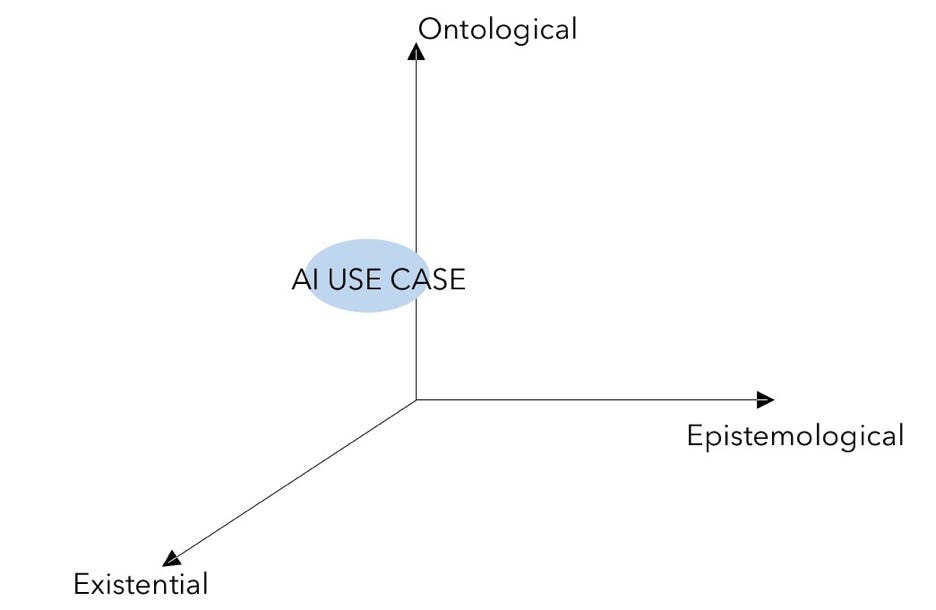Islamic Ethics and AI: A Trusteeship Approach to Ethical AI Development
Humans are Ethical Stewards
The rapid expansion of Artificial Intelligence (AI) is transforming industries worldwide, from healthcare and finance to governance and surveillance. Yet, as AI systems become more integrated into our daily lives, critical ethical concerns arise—algorithmic bias, privacy violations, environmental sustainability, and systemic inequities. While dominant ethical frameworks, such as Luciano Floridi’s Information Ethics, emphasize transparency and accountability, they often lack spiritual depth and cross-cultural inclusivity.
As AI increasingly shapes societies with diverse religious and ethical traditions, a new ethical paradigm is needed—one that goes beyond secular utilitarianism and embeds morality into the very foundation of AI development.
In response to these concerns, a new ethical model, rooted in Islamic principles, presents an alternative—one that transcends secular, profit-driven motives and offers a holistic approach to AI governance. This model, called the trusteeship (I'timāni) framework, is grounded in the Qur'anic concept of divine trust (amana), which views humans as stewards (khalifa) responsible for the moral management of technology and creation. By integrating this framework, AI can be developed in a way that not only ensures legal compliance but also aligns with humanity's higher moral responsibilities.
This perspective is detailed in the preprint "Islamic Ethics and AI: An Evaluation of Existing Approaches to AI using Trusteeship Ethics".
A New Paradigm: The Trusteeship (I’timāni) Framework
At the heart of this approach is the Qur’anic concept of divine trust (amana), which views humans as ethical stewards (khalifa) responsible for just governance over knowledge, creation, and technology. This trust is upheld through three interconnected covenants that guide AI ethics:
Ontological Covenant → Ensures AI aligns with divine moral guidance rather than purely secular or profit-driven motivations.
Epistemological Covenant → Focuses on truth, justice, and intellectual integrity in AI-generated knowledge.
Existential Covenant → Emphasizes ethical stewardship over society and the environment, ensuring technology serves humanity’s well-being.
By embedding these principles, the I’timāni framework provides a holistic ethical foundation, ensuring AI development is not just legally compliant, but morally virtuous.
The Limitations of Maqasid al-Shariah
Many Islamic scholars have applied Maqasid al-Shariah (Objectives of Islamic Law) to AI, emphasizing the protection of faith, life, intellect, lineage, and wealth. However, this legalistic approach, originally designed for jurisprudence, struggles with AI’s complex ethical dilemmas—particularly intentionality (niyyah) and the unseen risks embedded in algorithmic decision-making.
For instance, Maqasid might justify AI-driven surveillance under the goal of preserving life, but it fails to address the moral concerns of privacy violations and misuse by authoritarian regimes. The I’timāni framework, on the other hand, evaluates both the means and the ends, ensuring AI serves justice and human dignity holistically.
Why Floridi’s Information Ethics Isn’t Enough
Luciano Floridi’s Information Ethics (IE) treats all informational entities—humans, data, and digital agents—as morally equivalent within the infosphere. While this is an innovative approach, it lacks metaphysical grounding:
IE prioritizes procedural integrity (e.g., transparency and accountability), but neglects spiritual and moral intentionality.
IE’s secular neutrality means it fails to resonate with non-Western worldviews, particularly those that see morality as deeply intertwined with spirituality.
IE lacks a framework for stewardship—it does not address AI’s environmental or social impact through a lens of ethical responsibility to future generations.
By contrast, the trusteeship (I’timāni) framework integrates divine trust (amana) with ethical intentionality, ensuring that AI aligns with humanity’s higher moral purposes.
How the I’timāni Framework Applies to Real-World AI Ethics
The trusteeship (I’timāni) framework provides practical ethical guidelines across different AI applications:
AI in Healthcare
Ensuring AI-driven medical diagnostics prioritize human dignity (karamah) over profit-driven efficiency.
Developing fair and accessible AI models for drug discovery, avoiding exploitation of vulnerable populations.
AI in Finance
Preventing algorithmic bias in loan approvals, ensuring AI upholds financial fairness.
Regulating AI-driven financial markets to prevent exploitative algorithms that harm economically disadvantaged groups.
AI in Surveillance & Privacy
Balancing national security needs with individual privacy by embedding ethical oversight in AI surveillance technologies.
Using sadd al-dharai (blocking harmful means) to prohibit unethical AI applications (e.g., mass monitoring without consent).
AI Governance: A Call for Global Ethical Reform
Most AI regulations today are heavily influenced by Western corporate interests, leading to an ethical landscape dominated by profit-driven frameworks. The trusteeship (I’timāni) framework provides an alternative vision—one that is inclusive, cross-cultural, and spiritually grounded. Key recommendations include:
Establishing ethical AI auditing bodies based on the I’timāni model.
Incorporating spiritual accountability into AI governance, ensuring AI systems serve justice (adl) and sustainability (istidama).
Developing cross-cultural alliances that integrate Islamic, indigenous, and non-Western ethical perspectives into global AI ethics.
Advocating for global AI regulations that prioritize human dignity, fairness, and transparency over corporate profits.
Final Thoughts: A Vision for Ethical AI Grounded in Divine Trust
AI is not merely a technological challenge; it is a moral and ethical test for humanity. We are called to engage with AI in a way that reflects our ultimate responsibilities as stewards of creation and responsible managers of technology. The I’timāni framework offers a transformative vision that not only addresses current ethical dilemmas but also provides a path for AI to serve a higher purpose, aligned with justice, sustainability, and human dignity.
In conclusion, AI must be developed and governed not just with an eye on efficiency or profitability, but with a deep commitment to moral integrity, spiritual intentionality, and the flourishing of all people. By integrating divine trust (amana) into AI development, we ensure that AI is used for the greater good of humanity, helping to shape the moral trajectory of the future.
For a deeper dive into these ideas, check out the full preprint:
🔗 Islamic Ethics and AI: An Evaluation of Existing Approaches to AI using Trusteeship Ethics
🔗An AI generated podcast of the paper is here



